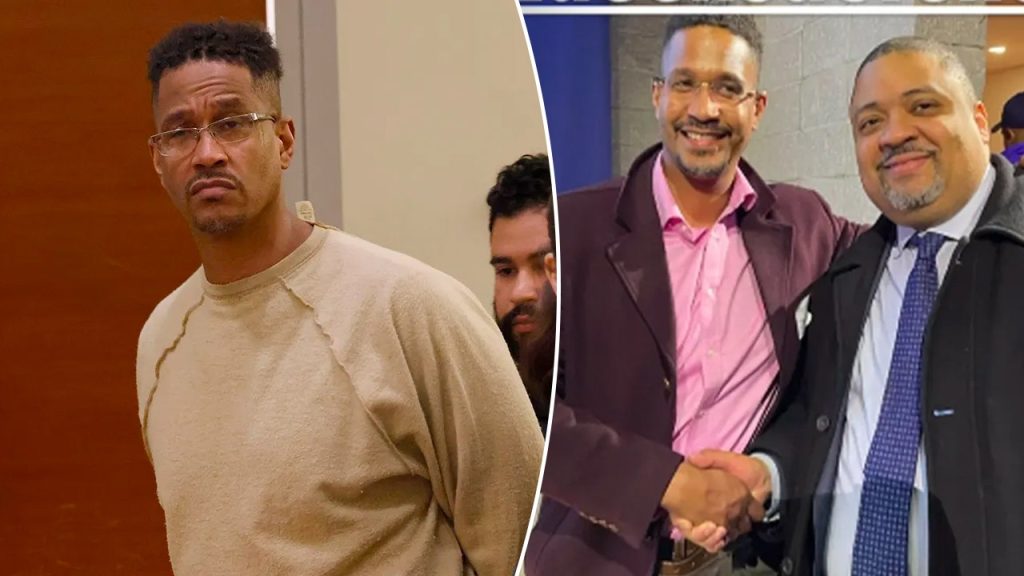Sheldon Johnson, a former convict turned criminal justice reform advocate, has recently been accused of murdering a man named Collin Small in a Bronx apartment. Johnson, who had previously worked with the Queens Defenders and associated with high-profile figures like Manhattan District Attorney Alvin Bragg and podcaster Joe Rogan, pleaded not guilty to the charges in court. The police found Small’s dismembered body parts in various locations, including a storage bin and a freezer in Johnson’s Harlem apartment. Surveillance footage showed Johnson changing disguises after the murder, including wearing a blonde wig to evade detection.
Neighbors reported hearing pleas for mercy before gunshots were fired in Small’s apartment building, where Johnson was seen coming and going in different disguises after the crime. Just weeks before his arrest, Johnson had appeared on Rogan’s podcast and had been released from prison the previous year after serving a lengthy sentence for armed robberies. Despite his claims of reform and rehabilitation during his time in prison, Johnson is now facing serious charges for murder and is being held without bail in a New York City jail.
Johnson’s arrest has shocked many, as he had been active in advocating for criminal justice reform and had cultivated relationships with influential individuals, including Bragg and the CFO of the Brooklyn Nets NBA team. The exact relationship between Johnson and Small, both of whom had served time in prison, is unknown, and the circumstances surrounding the murder remain unclear. Johnson’s Instagram posts and appearances on podcasts like Rogan’s suggest a complex and troubled past, with a mix of advocacy for reform and involvement in criminal activities.
The details of Small’s murder, including the gruesome discovery of his dismembered body parts in various locations, have heightened public interest in the case. Johnson’s not guilty plea in court indicates that he plans to contest the charges against him, despite the damning evidence presented by law enforcement. The Queens Defenders, with whom Johnson had previously worked, declined to comment on his arrest, while Bragg’s office did not respond to requests for statement on the matter. Johnson’s sudden fall from grace, from a supposed criminal justice reform advocate to a murder suspect, has raised questions about his character and motivations, as well as the nature of the criminal justice system itself.
The shocking nature of the crime, with its disturbing details and unexpected perpetrator, has captured the attention of the public and media alike. Johnson’s involvement in criminal activities despite his efforts at reform raises questions about the effectiveness of rehabilitation programs for ex-convicts and the challenges they face upon reentering society. The intersections of crime, advocacy, and personal redemption are complex and fraught with contradictions, as Johnson’s case demonstrates. The legal proceedings against Johnson will likely shed light on the circumstances surrounding Small’s murder and the motivations behind Johnson’s alleged actions, presenting a troubling yet compelling narrative of crime and justice in modern-day New York City.


